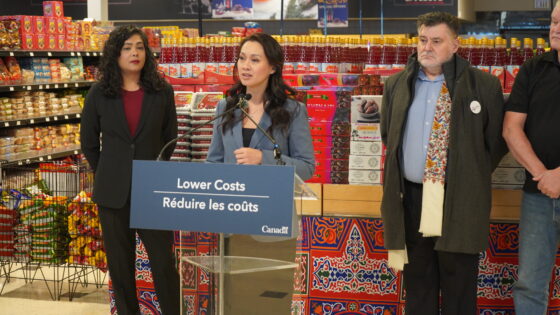on
BY SIMONE J. SMITH
Men!
Complicated and complex,
Not only to us women, but to themselves.
Under the smiles and the “I have it all together,” attitude there’s a lot of anxiety and stress building up, especially in the African – Caribbean community where men may not know how to cope with their feelings. Thankfully, there is an organization that realizes it’s time to remove this reality from being the norm. It’s time to create more safe spaces for men.
Men often feel cut off emotionally, and unlike women, they don’t have ‘safe’ spaces to express themselves, outside maybe the barbershop. Men have shared with me that they are expected to take on the role of, “The strong one,” or “The breadwinner,” and too often they are told to not complain and “Man-up!”
It is time for a change.
It is time to create a safe space for our men to feel whole: welcomed, accepted, fully: where they don’t have to hide their true selves.
On Saturday, January 14th, 2023: Brothers Who Care (BwC), 100 Strong & Sexy, Jully Black, Blue Mountain Resort, LifeWorks and Xtreme Hip Hop came together to curate “A Winter Mental Health & Wellbeing Experience,” a weekend set aside for self love, empowerment, and healing. The weekend included: the January edition of the Mental Health Hour, hosted by Founder of Brothers Who Care David Griffiths; fun on the slopes; a sensational and provocative concert starring the one and only Jully Black, and a day of fitness to end the weekend on a high note.
I was able to make it up to Blue Mountain Resort for the Saturday Mental Health Hour, a series focused on working as a community to dismantle mental health stigmas, and addressing the rising mental health issues within the African-Caribbean community.
David did an excellent job of picking men to speak on his panel, men who could brilliantly address: mental health stigma, the power of self-care, the importance of seeking professional help if possible, and opening avenues of communication with each other.
First, there is writer, poet, host, mental health and love advocate Nigel Birch, whose primary focus is to share love through creative expression. In the world of art and entertainment, everything is subjective. He opened the event with poetry, which for him is an accessible form of self-expression and it’s highly therapeutic. His art breaks the rules of conventional wisdom, and it is why many are drawn in by the words of Nigel D. Birch.
The second panellist, Kwame Osei is a former pro-athlete (CFL), current high school teacher, Coach (Queen’s University Football Team), TV personality (Amazing Race Canada Finalist), Author (Inspirational Kids Books), CEO of athletic apparel company (Triumph Elite), Co-Founder of a non-profit mentorship organization (Northern Elite Football), host and keynote speaker. He has an uncanny ability to engage an audience and did so with the first ever paper, rock, scissors competition.
Last but not least is Tychon Carter-Newman, whose debut as a public figure stemmed from being crowned as the winner of Big Brother Canada Season 9. As the first black winner of the series, he has used his platform to amply topics surrounding mental health, authentically and with full transparency. He strongly believes that he can help be part of the change he would like to see in today’s world.
Then there is host, the man of the hour (literally), David Griffiths. Everyone has ideas, but Ideas are cheap, and talking is even cheaper. People listen to what David has to say, because his ideas have been successfully validated. David has taken the time to think about what the future will look like. He takes the time to ask, “How can I improve things,” and “What would I like to change in the current situation?“
The Mental Health Hour provided that safe space where the panellists were allowed to be themselves without fear of rejection or ridicule. On Saturday, the men shared their thoughts, ideas and feelings in an open way that led to further insights and growth. The room became a place of encouragement where instead of shutting down, the men were supported, welcomed to let out what they had locked inside. By doing this, they learned that they were not alone, and that there’s nothing wrong with leaning on another brother. That room became a place that allowed them to explore who they truly were without any pushback.
By creating more space for men to learn about themselves and detach from the chains of negative masculinity we can create a meaningful change that can impact the men involved as well as the people in their life and society.
Thank you Brothers Who Care, Jully Black, and 100 Strong & Sexy: what a great way to start 2023!
Stay in the loop with exclusive news, stories, and insights—delivered straight to your inbox. No fluff, just real content that matters. Sign up today!
We, as humans are guaranteed certain things in life: stressors, taxes, bills and death are the first thoughts that pop to mind. It is not uncommon that many people find a hard time dealing with these daily life stressors, and at times will find themselves losing control over their lives. Simone Jennifer Smith’s great passion is using the gifts that have been given to her, to help educate her clients on how to live meaningful lives. The Hear to Help Team consists of powerfully motivated individuals, who like Simone, see that there is a need in this world; a need for real connection. As the founder and Director of Hear 2 Help, Simone leads a team that goes out into the community day to day, servicing families with their educational, legal and mental health needs.Her dedication shows in her Toronto Caribbean newspaper articles, and in her role as a host on the TCN TV Network.













